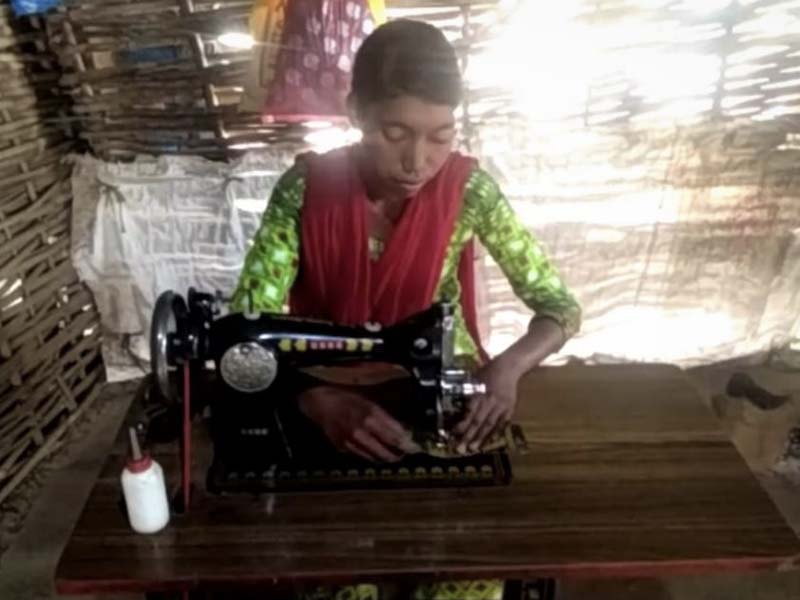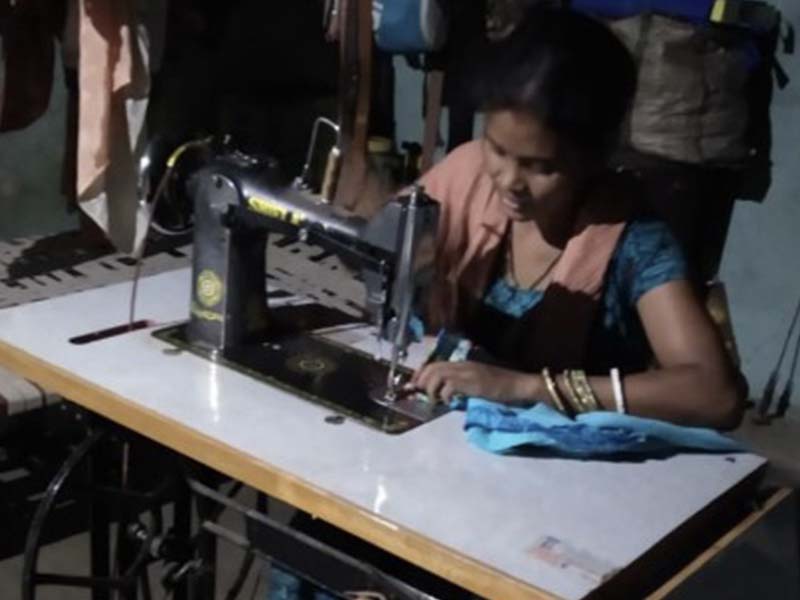Aiming High
Well Settled
Rani Meleka lives in Tikarapada village in Koraput District. She couldn’t get proper education in her childhood. Husband is a tractor driver and they have young child. His job is farm dependent and so it’s a seasonal income for the family. Often, it’s a struggle to keep the family afloat.
Operation Sahay Foundation opened a skill development centre near to their village. Rani joined the centre to learn stitching with an intent to have a consistent source of income. It was a little difficult to learn tailoring with her meagre educational background but coped up with the help of a perseverant teacher and hard work. Now she has successfully completed the course and earned a certificate. She and her family are happy as she bought a machine with some savings and is now stitching clothes.
Rani specializes in blouses and all ladies’ garments. She gets 5-6 customers a week from the villages near her. Now she is able to earn roughly Rs.1200 a week. This is a big boost to her family income. She says “I am grateful to OSF for providing the tailoring training near my village. It supported me financially and owing to this I am able to fulfill the needs of my family being able to stitch my own clothes and other’s clothes as well.”



